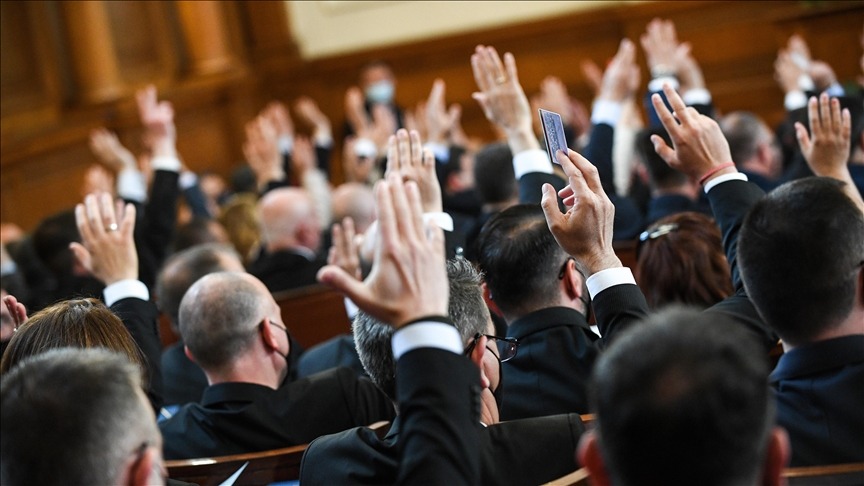Bulgaria will hold the first session of its 48th parliament on Oct. 19 to begin talks on forming a coalition government.
It will be the first one formed following early general elections on Oct. 2 but the fourth in less than two years.
In parallel with the work that will begin with the establishment of the presidency and administrative organs of parliament, negotiations will be held between various political parties, none of which could achieve an absolute majority.
The support of at least 121 lawmakers will be essential for the new Cabinet to receive a vote of confidence and be operational.
According to the constitution, President Rumen Radev will first give the task of forming a government to the party with the largest representation in the Assembly, after negotiations with parliamentary forces.
In the election, seven parties passed the 4% threshold for entering the new parliament. The distribution of seats was determined as follows:
The Citizens for European Development of Bulgaria (GERB) party, led by former Prime Minister Boyko Borisov, has 67 deputies.
The We Continue the Change (PP) party chaired by former Prime Minister Kiril Petkov has 53 members of parliament (MPs).
The Movement for Rights and Freedoms (HOH) party, whose members are mostly Turks and Muslims, has 36 deputies.
There are 27 MPs from the populist and pro-Russian Revival party.
There are 25 deputies from the pro-Russian Bulgarian Socialist Party (BSP), which carries out politics along the lines of the former Communist Party.
There are 20 MPs from the Democratic Bulgaria (DB) party, which is backed by urbanist right-wing forces
The pro-Russian Bulgarian Rise (BV) party, recently founded by former Defense Minister Stefan Yanev, has 12 deputies.
– Coalition arithmetic
Bulgarian citizens, who had to go to the polls to participate in the general elections for the fourth time in nearly two years, expressed their sentiments toward the country’s political elite with a participation rate of 37%.
Society expects greater responsibility from the politicians in the 48th Assembly after the inefficient work of the last three parliaments with a similar structure.
However, the current seven parties competed among themselves to declare “the red lines they cannot cross” before even passing the threshold for entering parliament. It is estimated that the coalition talks will be difficult in an environment with prejudices.
While political observers have presented various coalition formulas for the GERB party, which will be the first to form a Cabinet, they say these formulas are based on simple arithmetic, not political logic.
On the eve of the coalition talks, parties other than Yanev’s Bulgarian Rise announced that they would not join a coalition with GERB.
– Constitutional process
President Radev will hand over this task to the PP if the GERB party fails to form a government.
If the PP also fails in its attempts, the president will give one last chance to one of the other parties represented in parliament.
If a Cabinet cannot be formed in the 48th parliament, citizens could head to the polls again in the first half of 2023.
-AA

